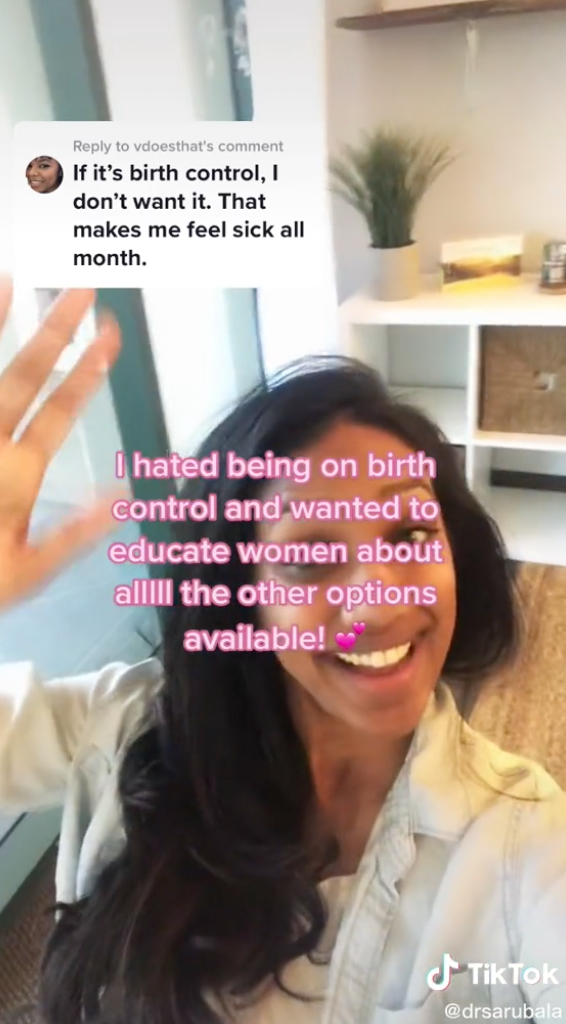“If You Take Birth Control For As Long As I Did And Stop, Your Body Can Go Into A Hormonal Shock And Trigger Autoimmune Disease Responses": This Woman Experienced Extreme Hair Loss As A Result Of Stopping The Pill
A 25-year-old woman named Chancey Sessions recently caught the attention of over 9 million people after she shared a harrowing side effect she experienced after she stopped taking birth control.
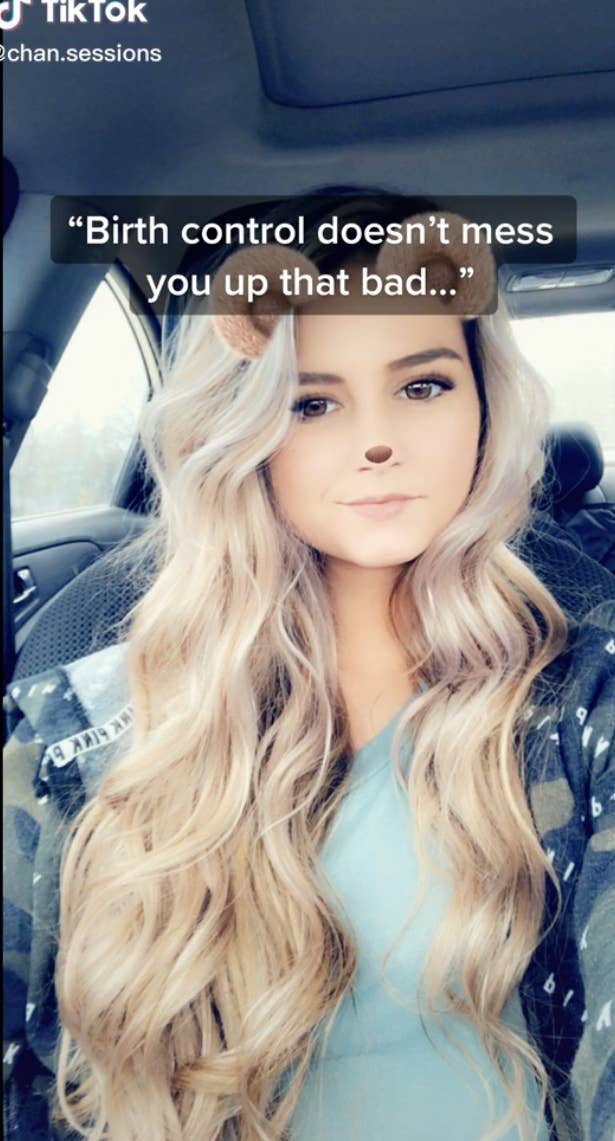
Chancey lost clumps of her hair...
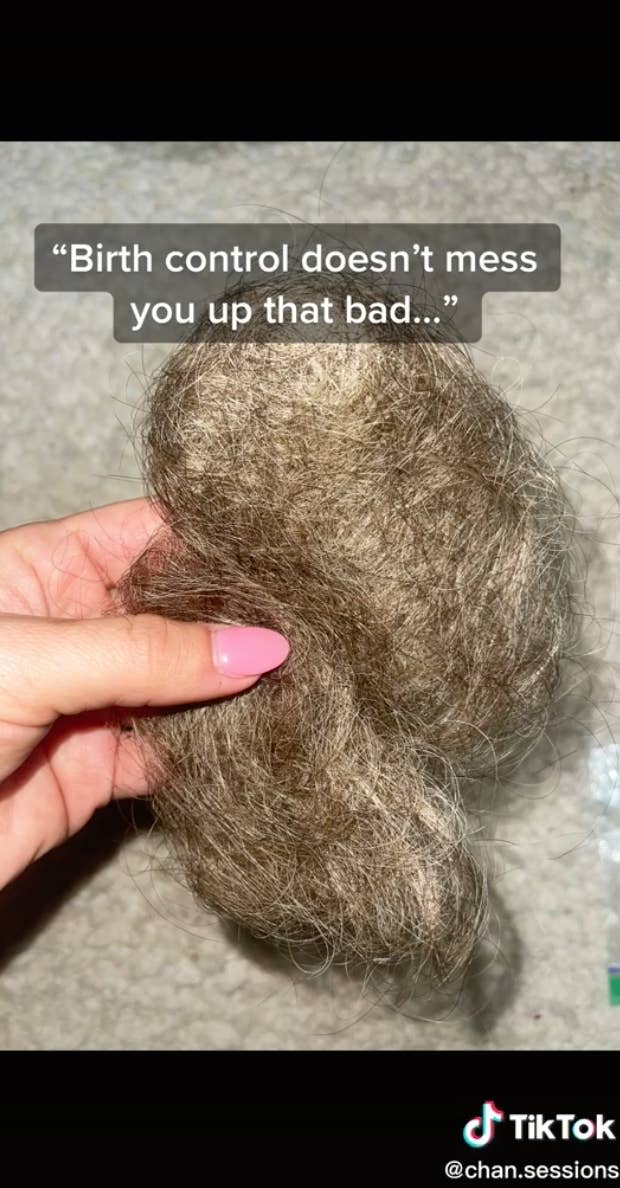
Which left her with large bald spots, as you can see below.
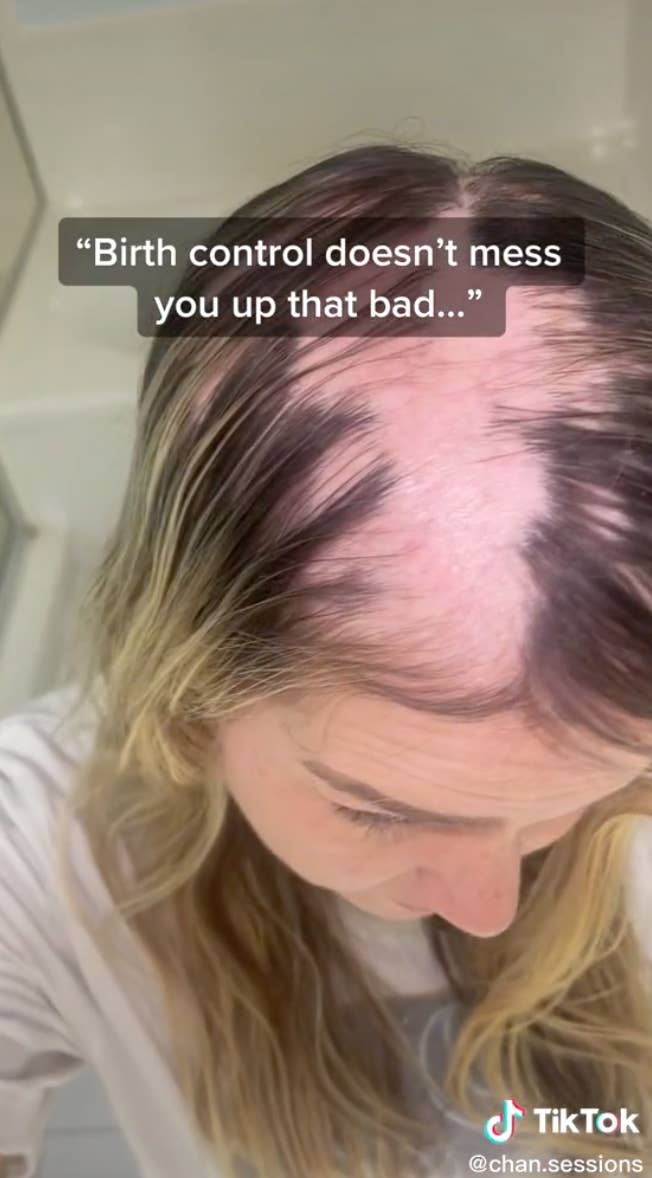
BuzzFeed spoke with Chancey, who, like many women, started birth control as a teenager (she was 13). "I first started taking it because I have an extremely irregular cycle. I was on several forms of low doses in my early years but had to switch to higher doses as the years rolled on due to several reasons," she said.
When Chancey first decided to stop taking her hormonal birth control pill, she noticed that she was shedding hair a lot. But then the shedding got so bad she started losing huge amounts of her hair.
"I truly felt like my life was ending. I knew something was up before it got bad, but no one around me would take me seriously. My in-laws and parents kept stating it was due to stress and I was very annoyed by it because I knew that it most certainly was not. I was in the middle of truly one of the happiest moments of my life, on my honeymoon in Bora Bora and Tahiti, when I first noticed something was up."
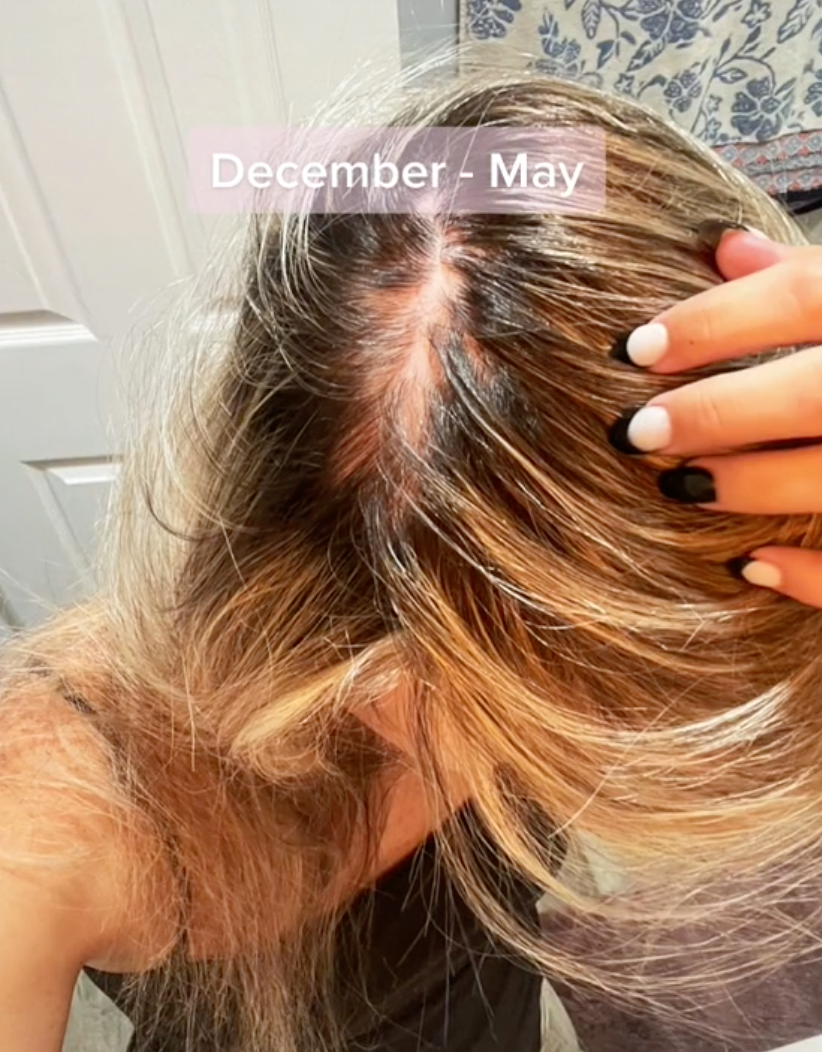
"I did my research prior to coming off the birth control pill and went to the doctor and gyno, but both claimed nothing would happen," Chancey said. She knew immediately coming off birth control was what was causing the sudden hair loss.
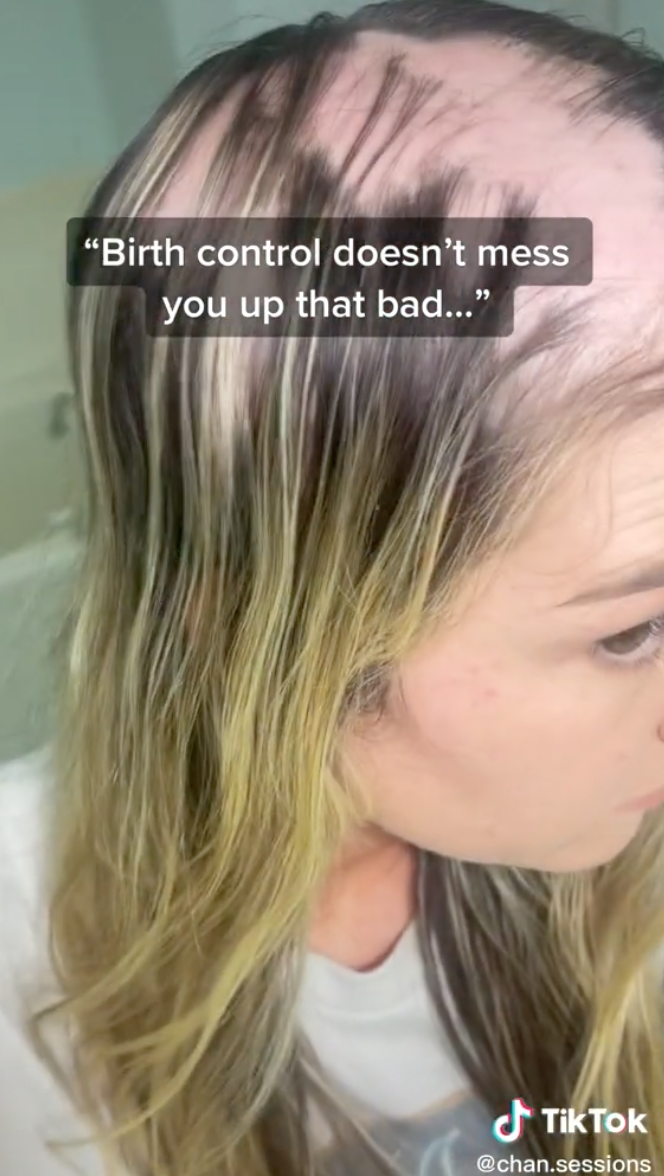
"Since I had taken birth control for so long, I knew I would likely experience some side effects going off it, but I had no idea that I would almost go bald," she said.
Chancey went to a dermatologist, who stated that she was experiencing hair loss from hormonal shock, but hers was the worst case she had seen. So, after blood tests and a biopsy, Chancey found out that coming off her birth control triggered an autoimmune disease called alopecia areata.
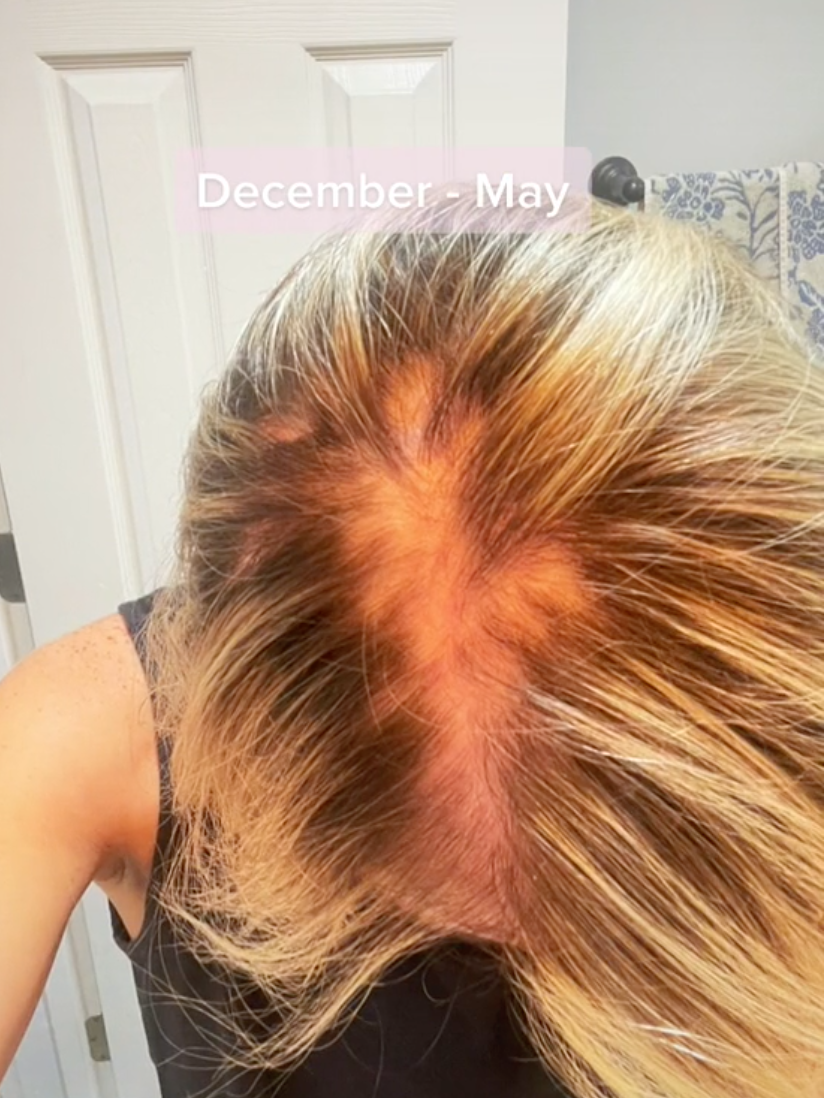
Alopecia areata causes hair to come out in clumps because hair follicles are attacked by the immune system.
"Once you take birth control for as long as I did and then strip your body of those synthetic hormones, your body goes into a hormonal shock and can trigger autoimmune disease responses. This is what happened to me."
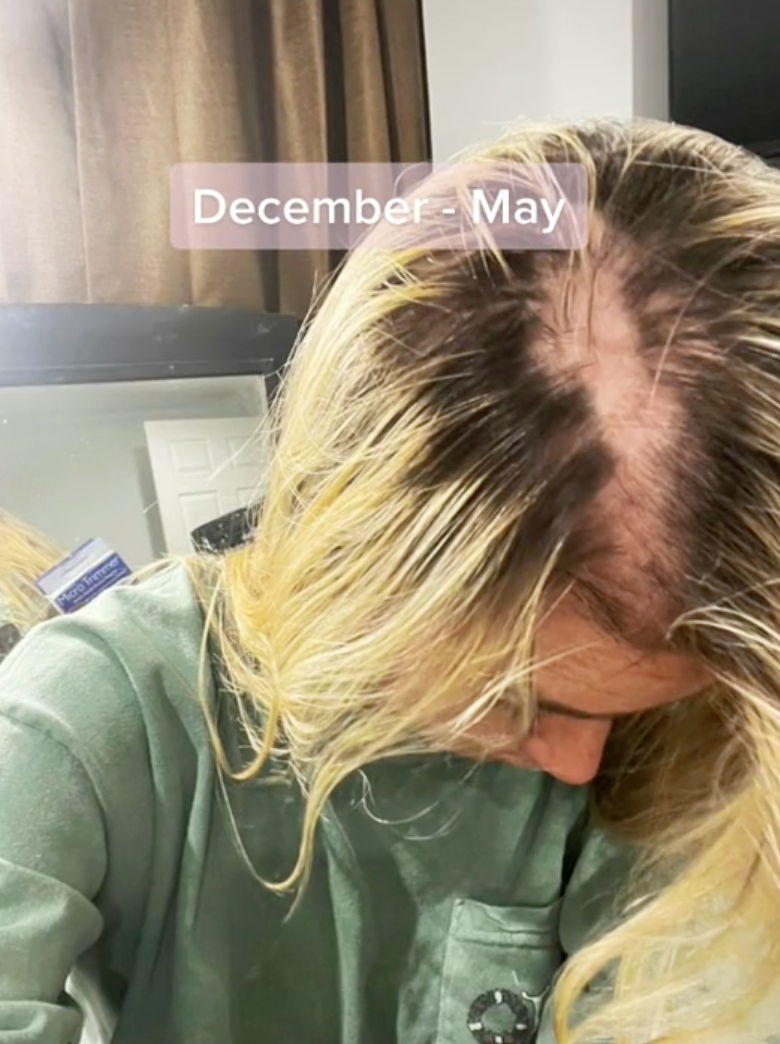
You can read more about the effects that estrogens and progestins have on the immune system, which increases the risk of developing autoimmune diseases, here.
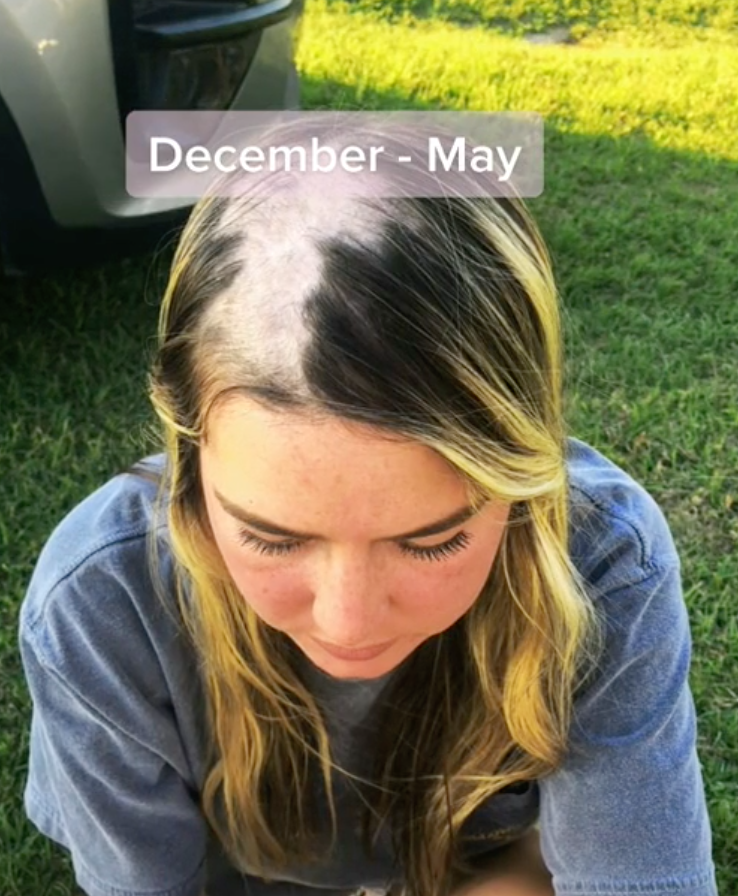
Luckily, Chancey went to an expert right away and was able to get her hormones balanced out to help her hair grow back. "I started shedding hair in January and almost went bald but by April it was completely covered again so February was my true growing month. It was peach fuzz in February but now I have two- to three-inch hairs all around," she said.
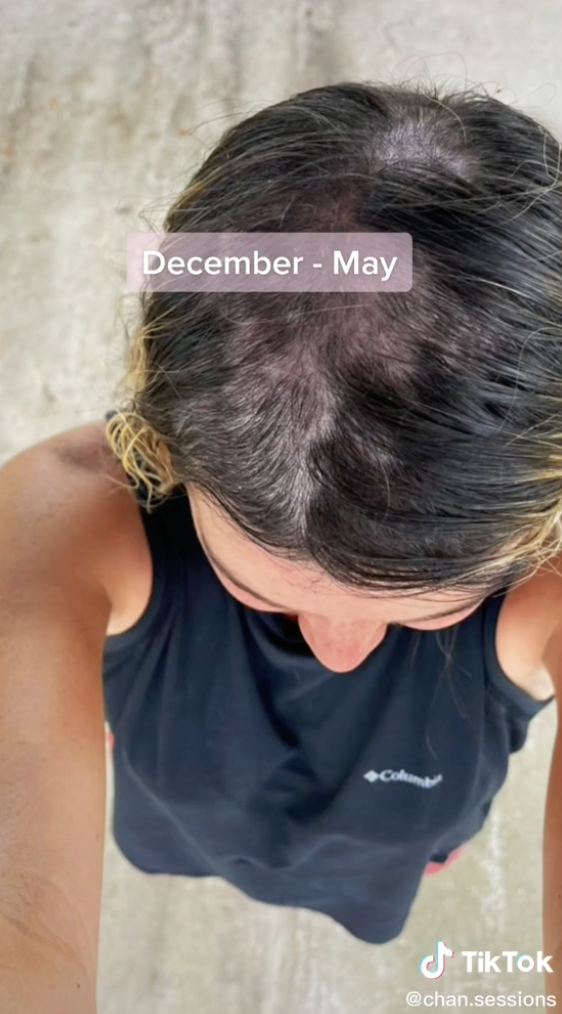
Chancey isn't alone in what she's experienced. You can find people all over TikTok talking about their own experiences with post–birth control hair loss, acne, and other side effects.
So, to get more information on the lesser-known side effects of stopping birth control, BuzzFeed spoke to Dr. Saru Bala.
Starting with hair loss, Dr. Bala said it's important to acknowledge that there is not a lot of literature when it comes to hair loss after the discontinuation of birth control. "That said, my own clinical experience along with the experience of other providers tells me that hair loss after stopping birth control can be quite common," she said.
"Typically, the reasons for hair loss can stem from thyroid disorders, chronic stress, low estrogen, elevated testosterone, PCOS, anemia, or other nutrient deficiencies. There are, of course, more factors to consider, but these are the main ones I see most often associated with hair loss — whether you're on birth control or not. Women with underlying PCOS, or elevated androgens secondary to another metabolic cause, are the ones I've seen experience hair loss symptoms the most. Thus, high androgen birth control can also contribute to hair loss."
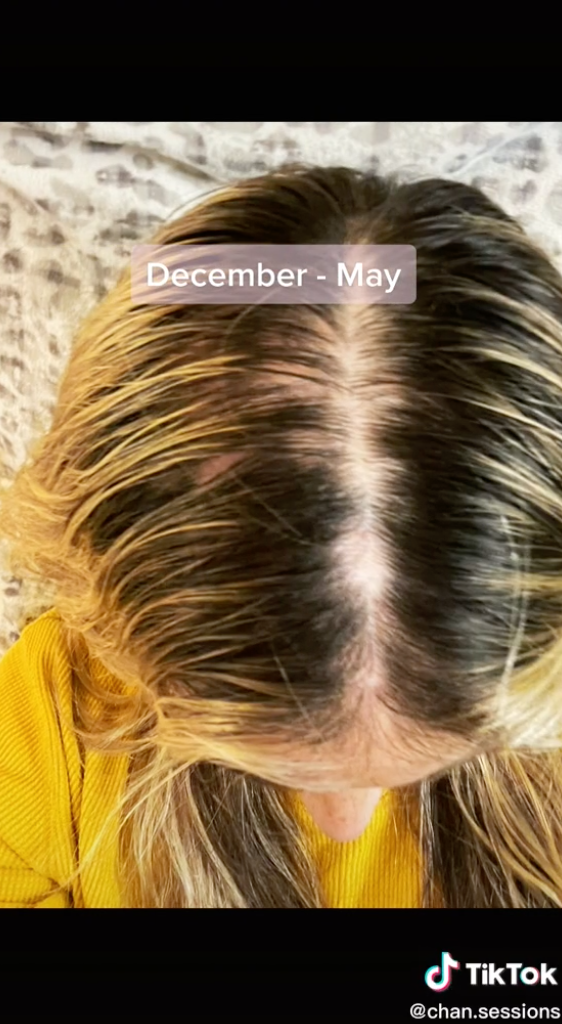
The most common high androgen birth control include Alesse, Estrostep FE, Levlen, Loestrin, and OvralElevated. "Androgens can be responsible for symptoms of hair loss, particularly around the crown of the head, facial hair growth, and cystic acne," Dr. Bala added.
People who are stopping the pill may avoid hair loss by making sure their gut is healthy. "Your body metabolizes and breaks down hormones in your liver and ultimately excretes them via your gut and bowel movements. Supporting your gut's excretion of your hormones to make sure you're clearing everything appropriately can be an overlooked, important step. So, make sure you're pooping enough by drinking adequate amounts of water, eating plenty of fiber through fruits/veggies/nuts/steeds/whole grains, and avoiding processed foods where you can," Dr. Bala said.
In addition, Dr. Bala said there are lots of other ways you may be able to avoid hair loss post–birth control. "Get your hormones checked. I typically like to check after two to three cycles after discontinuing birth control. I do this to make sure your thyroid is functioning well, you don't have issues with your androgens being elevated, you don't have metabolic factors like elevated insulin playing a role, or nutrient deficiencies leading to anemia," she said.
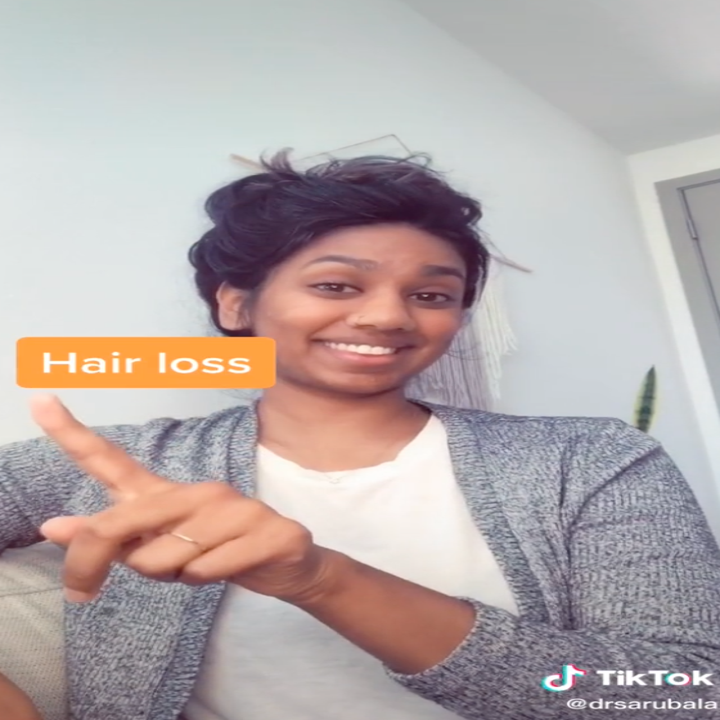
Stress levels and sleep are two huge things that can also contribute to hair loss, according to Dr. Bala. "If you have trouble falling asleep, staying asleep, waking up feeling rested, and having energy throughout the day, you may have a circadian rhythm and/or cortisol rhythm imbalance. Your cortisol regulation plays a major role in telogen effluvium (aka hair loss). These sleep and circadian rhythm issues are all things I like to address when I work with patients. Most of us are chronically stressed and sleeping poorly, this can show up with a symptom like hair loss."
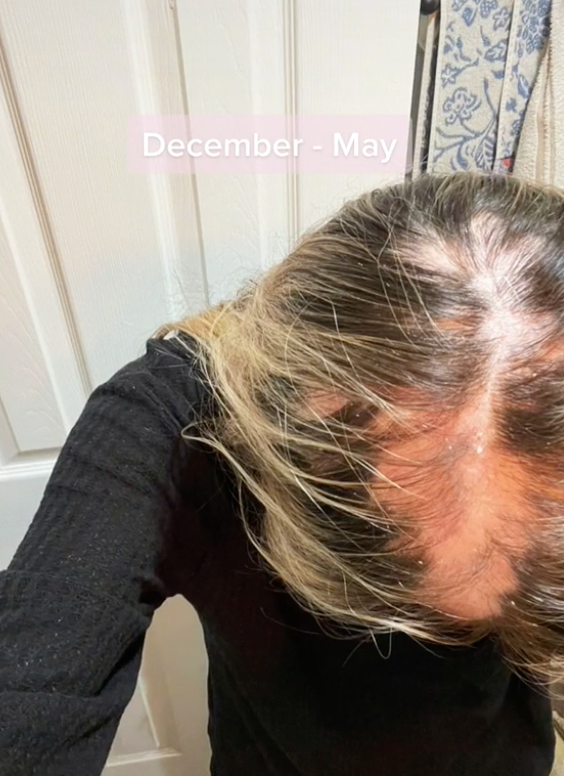
It's important to also be sure that your blood sugar levels are balanced. "This one helps with several health concerns. The easiest way we can do this is by increasing protein intake and making time for regular movement/exercise. Making sure to include protein with every meal/snack we have to help with blood sugar spikes, and exercise is a non-insulin-dependent way to regulate blood sugar."
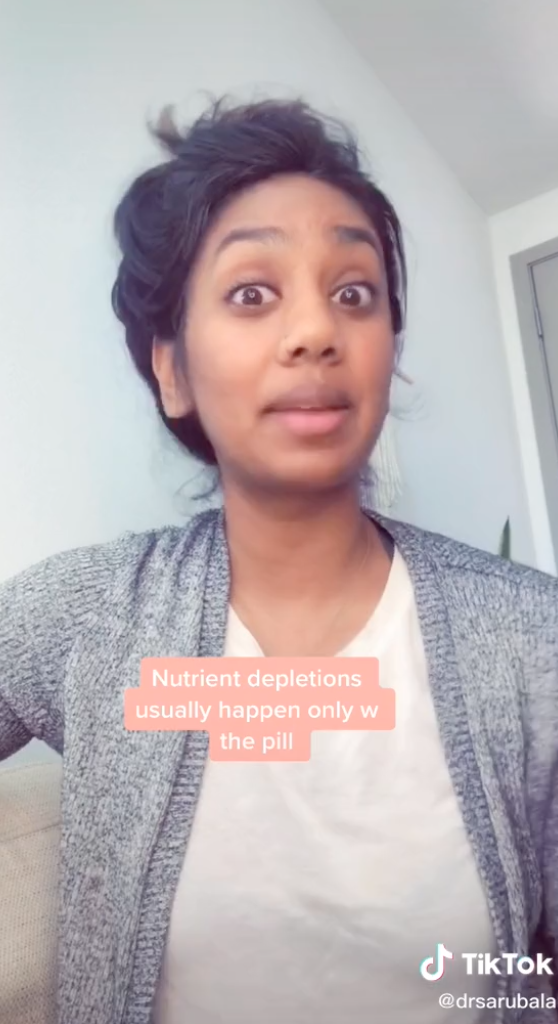
Lastly, make sure you're getting enough iron. "Iron-rich foods include meats, leafy greens, nuts, seeds, and legumes. Eating your non-heme ('plant-based') iron with vitamin C helps your body absorb that non-heme iron a bit better," Dr. Bala said.
When it comes to other lesser-known side effects that may happen when someone is coming off hormonal birth control, Dr. Bala said nutrient deficiencies are a big one. "Birth control has been shown to deplete key nutrients like folate and other B vitamins, vitamin C and E, and minerals like zinc, magnesium, and selenium."
